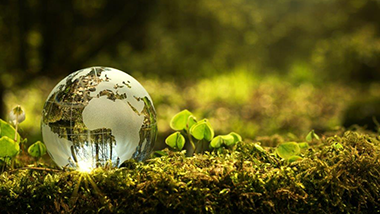Changes in The Bahamian environment: How we can reduce our carbon footprint
Changes in The Bahamian environment: How we can reduce our carbon footprint
As we approach the peak of the summer season, there is one constant which Bahamians have grown to expect: higher temperatures. With the rise of the heat index, energy consumption simultaneously increases and with the elevated use of energy comes extensive environmental and economic concerns.
The increase in energy usage results in an inflation of our carbon footprint, the acceleration of climate change, higher energy costs and a reduction in the supply of energy. The average Bahamian is familiar with the summertime heat, the high gas prices and electricity bills, multiple power outages and the unpredictable weather. Although many people perceive these occurrences as isolated incidences there is more support for the argument that these incidences are connected than there is opposition. Regardless of personal opinions or theories on climate change / global warming, one fact is undeniable: the environment that we live in is changing. As a country which not only depends on the environment daily but also advertises “sun, sand and sea”, the harsh reality of changes in the environment cannot be ignored.
The global recognition of environmental concerns such as energy conservation and climate change has existed since 1992 with the creation of the United Nations Framework Convention on Climate Change Treaty and has since been further strengthened by the implementation of the Paris Agreement in 2015. The Paris Agreement mandates that all parties to the agreement develop a plan and regularly contribute on its efforts to mitigate climate change. Over 195 countries have signed on to the Paris Agreement, including the Bahamas, and many have begun taking crucial cut backs on their country’s contribution to climate change. For example, France has proposed a ban on all petrol and diesel vehicles by 2040. A similar ban will also take effect in Norway and the Netherlands. In the Bahamas, there have been proposals to ban the use of plastic bags and styrofoam by the year 2020 which would decrease the demand for plastic bags and in turn reduce the amount of fuel utilized to make them.
Although we are a small country and contribute very little to the global problem, there are still things that can we can do on a daily basis to reduce our energy consumption. The following are just a few helpful tips that we all can implement:
• Turn off the lights as you leave a room and invest in energy-efficient light bulbs;
• Defrost your fridge and freezer regularly. If your freezer has a build-up of ice, it will have work harder to perform and therefore use more energy;
• Unplug chargers and small appliances from the wall socket. They use power even when the device is not in use;
• Clean the lint screen on your dryer after each load. As with filters, a clogged lint screen means your dryer will be less efficient and take longer to dry your washing which burns more energy (this also applies to wall unit air conditioning filters); and
• Monitor your use of water. Don’t leave the tap running while you are brushing your teeth, shaving or washing your face.
The benefit in practicing energy conservation in The Bahamas is two-fold; firstly, it assists in reducing the strain on the electrical grid which would reduce the likelihood of power outages and secondly, it allow consumers to spend less on electricity bills and at the gas stations.
Berchel Wilson
Ms. Berchel Wilson lends her legal expertise on matters relating to environmental law, taxation, intellectual property, and civil and commercial litigation. bklwilson@mckinney.com.bs

